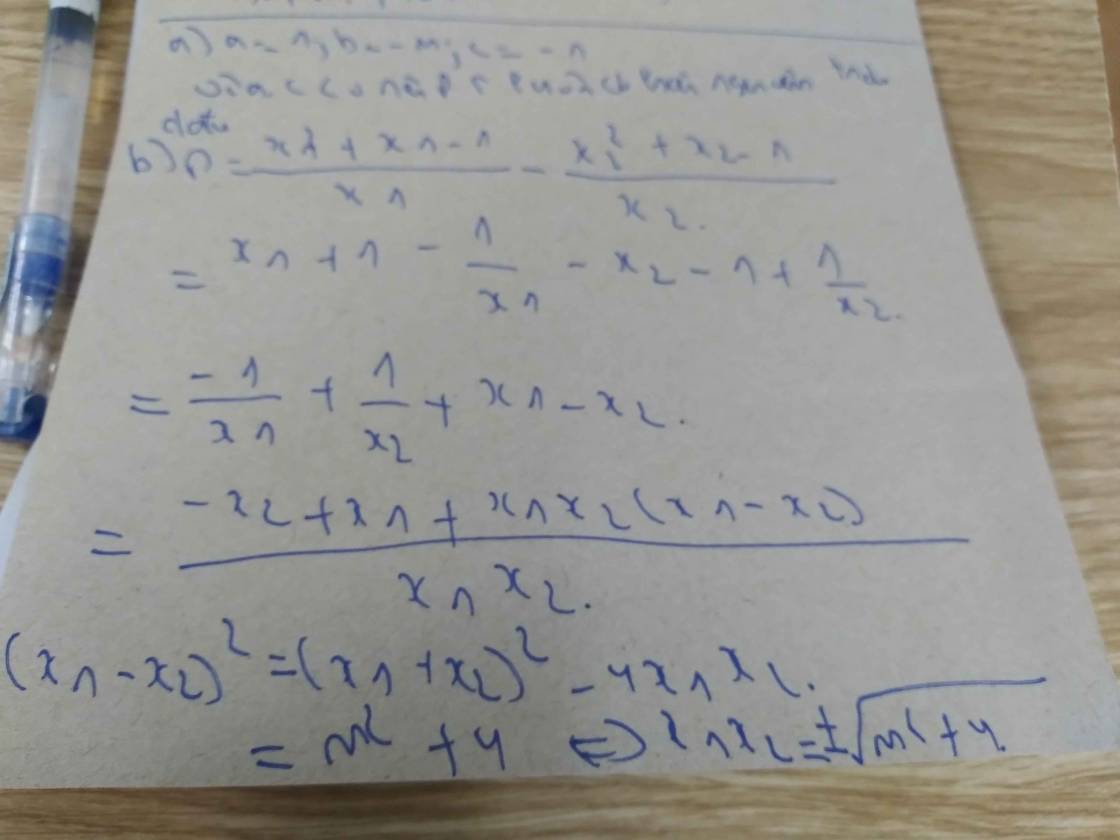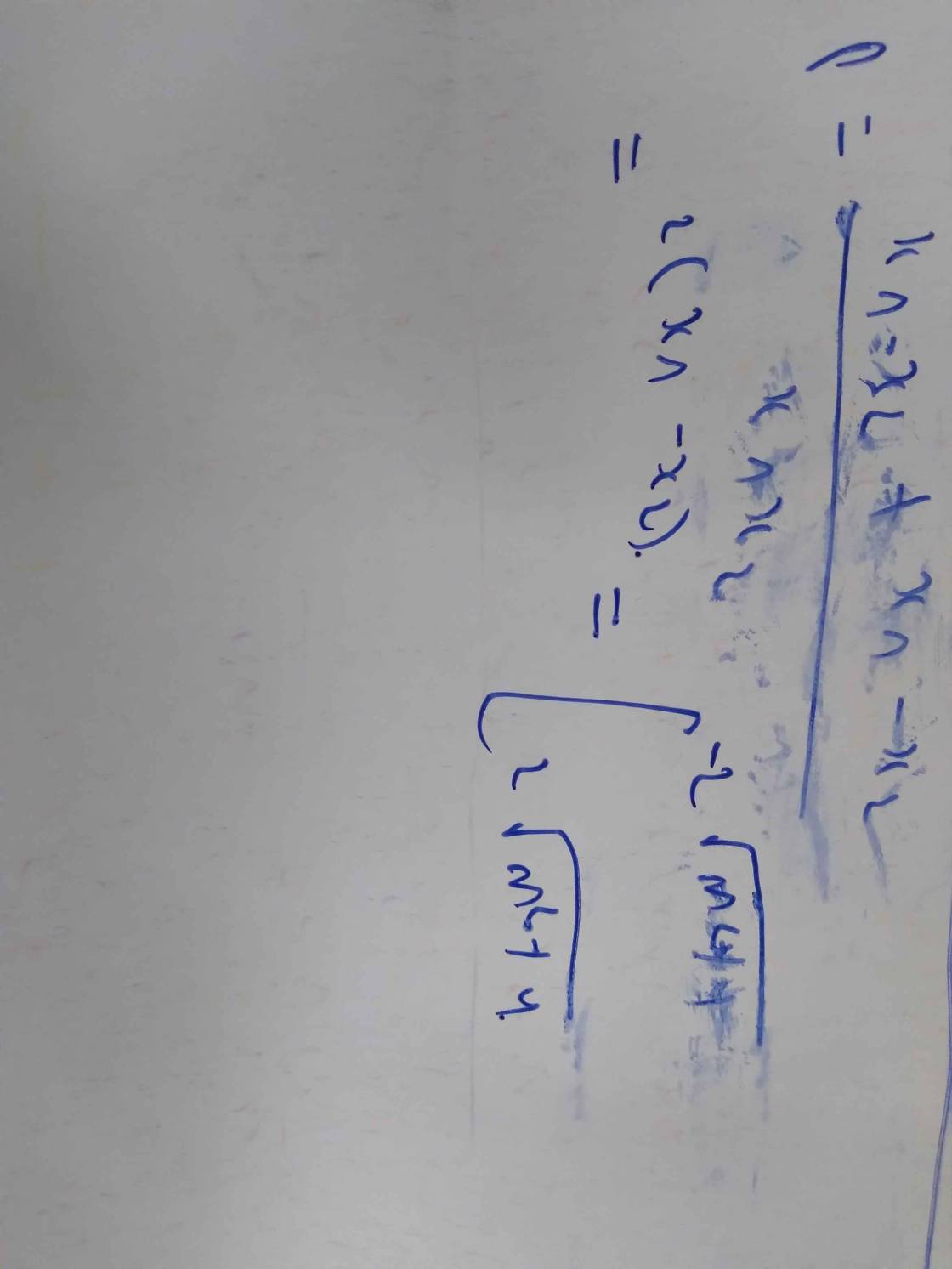Hãy nhập câu hỏi của bạn vào đây, nếu là tài khoản VIP, bạn sẽ được ưu tiên trả lời.
cho pt: x^2 - 4x + m = 0(m là tham số) b) Tìm m để pt có nghiệm x1, x2 thỏa mãn: 1/x1^2 + 1/x2^3 = 2


a) Khi m = 0 thì phương trình trở thành:
\(x^2+2\left(0-2\right)x-0^2=0\)
\(\Leftrightarrow x^2+2\cdot-2x-0=0\)
\(\Leftrightarrow x^2-4x=0\)
\(\Leftrightarrow x\left(x-4\right)=0\)
\(\Leftrightarrow\left[{}\begin{matrix}x=0\\x=4\end{matrix}\right.\)
b) Ta có:
\(\left|x_1\right|-\left|x_2\right|=6\)
\(\Leftrightarrow x^2_1+x_2^2-2\left|x_1x_2\right|=36\)
\(\Leftrightarrow\left(x_1+x_2\right)^2-2x_1x_2-2\left|x_1x_2\right|=36\)
Mà: \(x_1+x_2=-2\left(m-2\right)=4-2m\)
\(x_1x_2=-m^2\)
\(\Leftrightarrow\left(4-2m\right)^2-2\cdot-m^2-2\cdot m^2=36\)
\(\Leftrightarrow16-16m+4m^2+2m^2-2m^2=36\)
\(\Leftrightarrow\left(4-2m\right)^2=6^2\)
\(\Leftrightarrow\left[{}\begin{matrix}4-2m=6\\4-2m=-6\end{matrix}\right.\)
\(\Leftrightarrow\left[{}\begin{matrix}2m=-2\\2m=10\end{matrix}\right.\)
\(\Leftrightarrow\left[{}\begin{matrix}m=-1\\m=5\end{matrix}\right.\)

1) Thay m=1 vào phương trình, ta được:
\(x^2-2x+1=0\)
\(\Leftrightarrow\left(x-1\right)^2=0\)
\(\Leftrightarrow x-1=0\)
hay x=1
Vậy: Khi m=1 thì phương trình có nghiệm duy nhất là x=1
1) Bạn tự làm
2) Ta có: \(\Delta'=\left(m-1\right)^2\ge0\)
\(\Rightarrow\) Phương trình luôn có 2 nghiệm
Theo Vi-ét, ta có: \(\left\{{}\begin{matrix}x_1+x_2=2m\\x_1x_2=2m-1\end{matrix}\right.\)
a) Ta có: \(x_1+x_2=-1\) \(\Rightarrow2m=-1\) \(\Leftrightarrow m=-\dfrac{1}{2}\)
Vậy ...
b) Ta có: \(x_1^2+x_2^2=13\) \(\Rightarrow\left(x_1+x_2\right)^2-2x_1x_2=13\)
\(\Rightarrow4m^2-4m-11=0\) \(\Leftrightarrow m=\dfrac{1\pm\sqrt{13}}{2}\)
Vậy ...

a: a*c=-m^2-3<=-3<0 với mọi m
=>Phương trình luôn có hai nghiệm phân biệt
b: \(\dfrac{1}{x_1}+\dfrac{1}{x_2}=3\)
=>\(\dfrac{x_2+x_1}{x_2x_1}=3\)
=>\(\dfrac{-2}{-m^2-3}=3\)
=>\(\dfrac{2}{m^2+3}=3\)
=>m^2+3=2/3
=>m^2=2/3-3=-7/3(vô lý)

